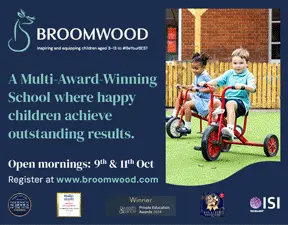Danby Church of England Voluntary Aided School
Ainthorpe Lane, Danby, Whitby, YO21 2NG
Ainthorpe Lane, Danby, Whitby, YO21 2NG
Pupils
41
Ages
5 - 11
Gender
Co-educational
Type
Voluntary Aided School
Head Teacher
Mrs Elisabeth Orland
Danby Church of England Voluntary Aided School is a small school with 41 pupils aged between 5-11. The academic performance data shows that there is room for improvement, with N/A as the measured reading progress and 0 as the writing progress measure. However, it is important to note that 0% of students were absent or unable to access the test, which may have impacted the results.
In terms of pastoral care, Danby Church of England Voluntary Aided School excels in providing a supportive and nurturing environment for its students. The staff are dedicated to the well-being of all students, ensuring that their emotional and social needs are met.
Extra-curricular activities play a vital role in the school’s holistic approach to education. Students have the opportunity to participate in a range of activities that cater to their interests and talents, enhancing their overall school experience.
For students with Special Educational Needs, the school provides tailored support to ensure they reach their full potential. The focus on inclusivity and individualized learning plans is commendable.
The atmosphere at Danby Church of England Voluntary Aided School is warm and welcoming, creating a sense of community among students, staff, and parents. The forthcoming open days provide an opportunity for prospective families to experience this first-hand.
In conclusion, Danby Church of England Voluntary Aided School is a school that prioritizes the well-being and development of all students, offering a supportive environment where they can thrive academically and personally.
Danby Church of England Voluntary Aided School, located in North Yorkshire, underwent an inspection on January 19 and 20, 2022. The overall effectiveness of the school was rated as good, reflecting significant improvements since the previous inspection, which had rated it as requiring improvement. The quality of education, behavior and attitudes, personal development, leadership and management, and early years provision were all rated as good.
The school fosters strong relationships among staff and pupils, creating an environment where trust, respect, and friendship are evident. Pupils report that behavior has improved significantly, and incidents of bullying are rare. They demonstrate an understanding of their responsibilities as citizens both in school and online, showing awareness of potential dangers. The school encourages interaction across age groups, with older pupils engaging with younger ones during break times and taking on responsibilities during lunch, such as serving food and maintaining good manners.
Pupils enjoy outdoor activities and learning experiences, including visits to a nearby forest and residential trips for older students. They have a say in the after-school clubs offered, which include various interests such as computing, sports, and gardening. The staff is dedicated to the pupils' well-being and academic success, leading to a hardworking and engaged student body. The school environment is vibrant, and pupils take pride in their surroundings, including recent improvements to facilities.
In terms of academic performance, children in Reception quickly learn to read, mastering letter sounds and blending them to form simple words. Daily phonics instruction supports their reading development, and the books provided for home practice align with their phonics skills, fostering confidence and fluency. The mathematics curriculum is well-structured, focusing on number understanding and basic calculations, particularly in response to learning gaps caused by the COVID-19 pandemic. However, there is a need for more emphasis on reasoning and problem-solving skills within mathematics lessons.
Leaders have identified essential knowledge for various subjects and collaborate with local schools to enhance the curriculum. They utilize knowledge organizers to outline what pupils should have learned in previous years, aiding in lesson planning that builds on prior knowledge. While the quality of planned work varies across subjects, there is a recognition that key concepts connecting different subjects need to be better defined to enhance pupils' understanding.
Teachers effectively assess pupils' learning to inform their next steps, ensuring that any difficulties are addressed promptly. Pupils with special educational needs and disabilities receive appropriate support, allowing them to participate fully in school life. The school is aware of its narrow cultural context and has taken steps to broaden pupils' understanding of different faiths and lifestyles through its religious education and personal, social, and health education curricula.
The safeguarding arrangements are effective, with leaders continuously seeking improvements and working closely with external partners. Staff training is timely and relevant, ensuring that all staff members are equipped to identify and report any concerns regarding pupil safety.
Despite the positive aspects, the school recognizes the need for further improvement in curriculum planning and sequencing in some subjects. There is a clear commitment from leaders to address these areas, indicating a proactive approach to enhancing the educational experience for all pupils. Overall, the school demonstrates a strong foundation for continued growth and success in the future.
Last Updated: 9 December 2024
The Great British Schools Guide (published by Great British Schools Guide Limited) is currently in launch mode.
We would be grateful if you could email data@greatbritishschoolsguide.com if you find any inaccuracies or would like to update your listing. Thank you.
Comparing, saving and returning to your favourite schools is just a click away




